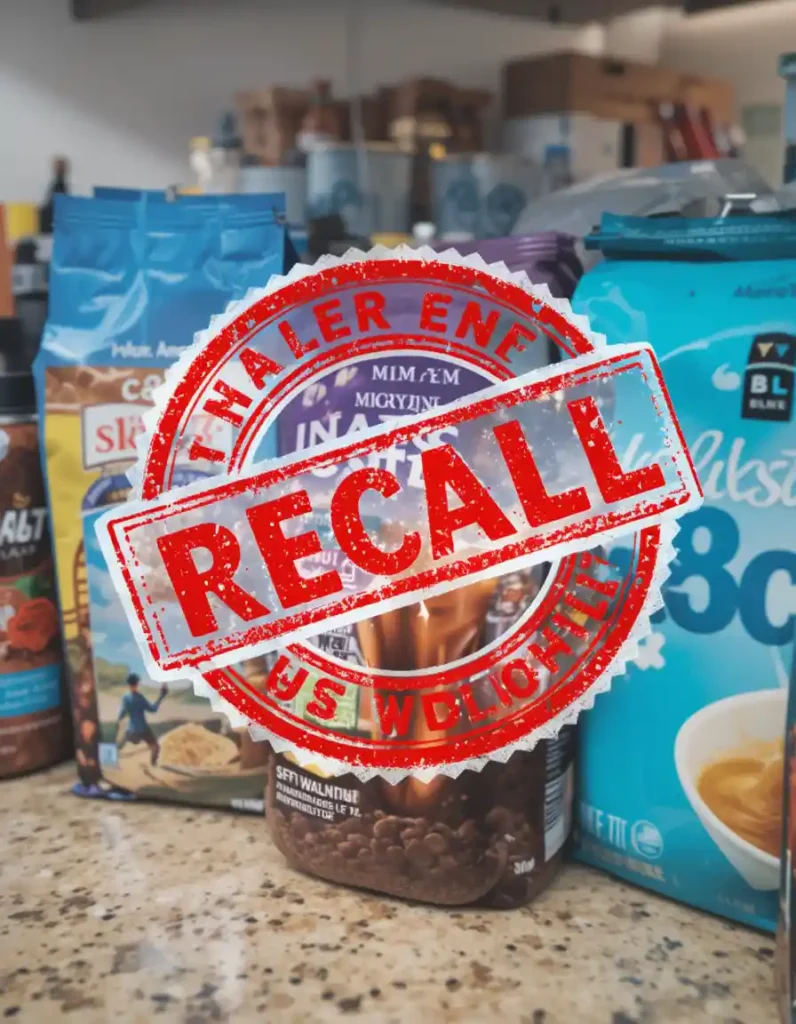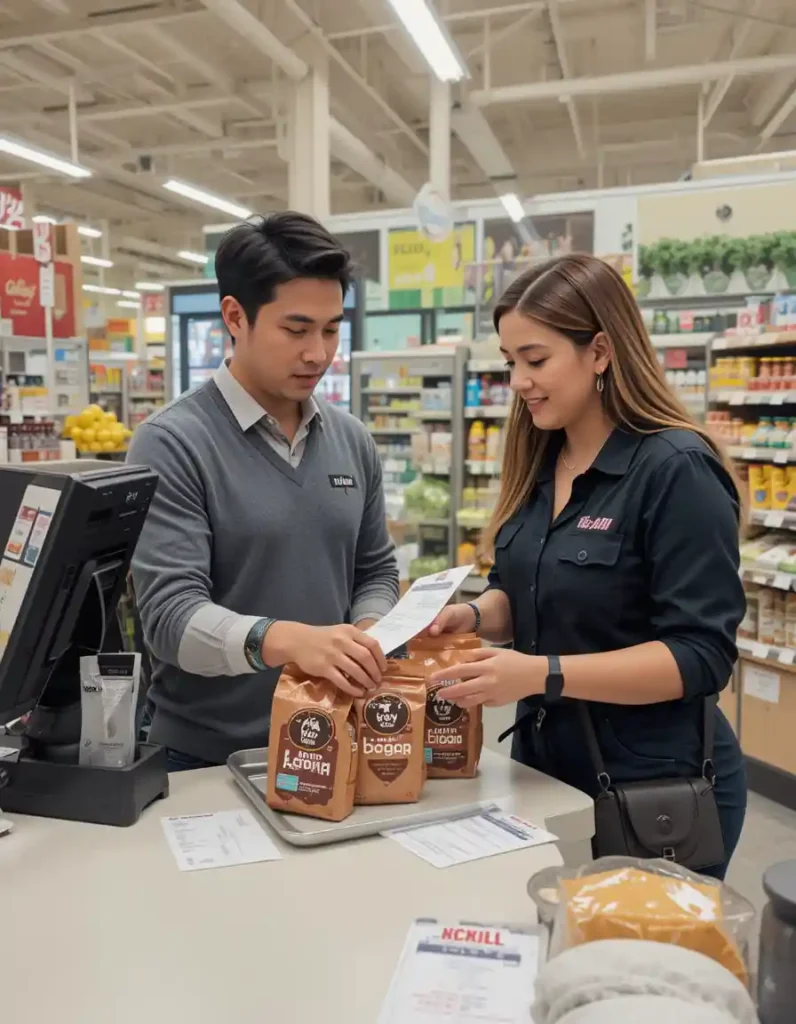5 Coffee Recalled: Find Out Which Ones! 🚨☕
Table of Contents
Table of Contents
Introduction: When Your Morning Cup Becomes a Morning Concern
We all reach for that comforting cup first thing in the morning, expecting our coffee to energize us for the day ahead. But what happens when that trusted brew becomes a potential health hazard? Recent recalls affecting five popular coffee brands have left many consumers wondering if their pantry staples are safe. As you pour your morning coffee, you might be questioning whether what’s in your cup is truly safe to drink. This feeling of uncertainty can disrupt your entire routine—after all, coffee isn’t just a beverage for most of us; it’s a daily ritual we depend on.

Coffee Recalls: What You Need to Know
The Food and Drug Administration has announced recalls for five coffee brands due to various contamination issues. These recalls span multiple states and include different product types, from ground coffee to cold brew concentrates. Understanding which products are affected could protect you and your family from potential illness.
The Five Affected Brands
The following coffee brands have been recalled due to safety concerns:
- Morning Sunrise Coffee – Recalled due to potential Salmonella contamination discovered during routine testing. This bacteria can cause serious gastrointestinal issues, particularly dangerous for young children, elderly individuals, and those with compromised immune systems.
- Premium Roast Selections – Metal fragment contamination found in ground coffee packages, posing risks of oral injury, choking, or internal cuts if consumed. The contamination has been traced back to a malfunctioning grinder at their main processing facility.
- Mountain Peak Organics – Undeclared allergens (almonds) discovered in flavored varieties, creating severe risks for those with tree nut allergies. The contamination occurred when the company failed to properly clean equipment between production runs.
- Global Bean Importers – Elevated ochratoxin A levels (a naturally occurring mold toxin) were detected in several batches. Long-term exposure to this toxin has been linked to kidney damage and potential carcinogenic effects.
- Coastal Brew Company – Improper processing potentially allowing growth of Clostridium botulinum in their cold brew concentrates. This bacterium produces a dangerous toxin that can cause botulism, a potentially fatal form of food poisoning.

Recall Dates and Batch Information
To determine if your coffee products are affected, check the following information against the packaging in your home:
Potential Symptoms to Watch For:
- Nausea and vomiting
- Diarrhea
- Abdominal pain
- Fever (particularly with Salmonella contamination)
- Severe allergic reactions (for undeclared allergens)
- Neurological symptoms like:
- Double vision
- Drooping eyelids
- Slurred speech (in cases of botulinum exposure)
- Difficulty swallowing or breathing
- Unusual fatigue or weakness
Some symptoms may appear within hours of consumption, while others might take days to develop. Don’t dismiss mild symptoms, as they could worsen over time.
What to Do If You’ve Consumed Recalled Coffee:
- Check your pantry for affected products immediately.
- Stop consumption immediately if you have recalled items.
- Monitor for symptoms over the next 72 hours.
- Contact your healthcare provider if symptoms develop, even mild ones.
- Report adverse reactions to the FDA through their MedWatch program.
- Keep the product packaging for reference when speaking with healthcare providers or authorities.
4o mini
Health Risks Associated with the Recalled Products
The health implications of consuming recalled coffee products vary depending on the specific contaminant. Being aware of potential symptoms can help you seek appropriate medical attention if needed.

Potential Symptoms to Watch For
If you’ve consumed any of the recalled coffee products, be alert for these symptoms:
- Nausea and vomiting
- Diarrhea
- Abdominal pain
- Fever (particularly with Salmonella contamination)
- Severe allergic reactions (for undeclared allergens)
- Neurological symptoms like double vision, drooping eyelids, and slurred speech (in cases of botulinum exposure)
- Difficulty swallowing or breathing
- Unusual fatigue or weakness
Some symptoms may appear within hours of consumption, while others might take days to develop. Don’t dismiss mild symptoms, as they could potentially worsen over time.
What to Do If You’ve Consumed Recalled Coffee
- Check your pantry for affected products immediately
- Stop consumption immediately if you have recalled items
- Monitor for symptoms over the next 72 hours
- Contact your healthcare provider if symptoms develop, even mild ones
- Report adverse reactions to the FDA through their MedWatch program
- Keep the product packaging for reference when speaking with healthcare providers or authorities
How to Identify If Your Coffee Is Affected
Identifying recalled products requires careful examination of packaging details. Companies intentionally make this information accessible, though it sometimes requires close inspection.
Package Identification Guide
Looking at your coffee packaging can quickly tell you if your product is part of the recall. Check for these specific identifiers:
- Batch numbers (typically printed on the bottom or side of the package)
- Production dates (format varies by manufacturer)
- UPCs (scan with your phone to verify)
- Manufacturing facility codes (often a combination of letters and numbers)
- “Best by” or expiration dates (cross-reference with recall notices)
- Special packaging markings unique to affected batches
“Consumer safety is our top priority. We urge all customers to verify their products and return affected items immediately for a full refund. When in doubt, we recommend erring on the side of caution.” – FDA spokesperson
Where to Check for Official Recall Information
Keep yourself informed through these official channels:
- Company websites of affected brands
- Retailer notification systems (many stores post recall notices or send emails)
- Consumer safety alert apps like Recalls Plus or Food Keeper
- Social media accounts of official agencies and affected companies
- Local health department announcements
Safe Alternatives to Consider
Finding reliable replacements for your daily coffee doesn’t have to be difficult. Several brands remain unaffected by the current recalls.
Verified Safe Coffee Brands
If you need to replace your recalled coffee, these brands have confirmed they are not affected:
- Highland Roasters – Their strict quality control program includes multiple testing points for contaminants.
- Urban Grind Coffee Co. uses separate production facilities with allergen-free processing lines.
- Emerald Valley Organic – Implements rigorous supplier verification programs to prevent contamination.
- Sunrise Specialty Coffees – Utilizes advanced metal detection systems in their processing.
- Pure Bean Selections – Features hermetically sealed packaging that reduces the risk of post-production contamination.
Many of these companies have issued statements confirming their products remain safe for consumption. Its manufacturing practices often exceed industry standards, providing additional protection against the issues affecting recalled brands.

How to Return Recalled Products
Most retailers and manufacturers are offering multiple options for consumers with recalled products:
- Full refunds with or without receipt (policies vary by retailer)
- Product exchanges for safe alternatives
- Store credit options (sometimes with bonus amounts as goodwill gestures)
- Mail-in return programs for online purchases
- Special customer service hotlines dedicated to handling recall concerns
Contact the store where you purchased the product or the manufacturer directly to learn about your specific options. Many companies have streamlined their return processes to accommodate the high volume of returns.

Preventing Future Coffee Safety Issues
While manufacturers bear primary responsibility for product safety, consumers can take steps to minimize risks from future coffee product recalls.
Storage Tips for Maximum Safety
- Store coffee in airtight containers to prevent moisture absorption
- Keep in cool, dry places away from heat sources
- Check for signs of mold or unusual odors before brewing
- Follow “best by” dates more strictly with ground coffee than whole beans
- Purchase from reputable sources with strong quality control
- Consider freezing rarely-used coffee to extend shelf life
- Inspect packaging for damage or tampering before purchase
- Clean coffee makers regularly to prevent buildup of residues
Coffee naturally absorbs odors and moisture from its environment, which can accelerate deterioration and potentially create conditions for mold growth. Proper storage significantly reduces these risks.
Understanding Coffee Production Safety
Coffee passes through many hands before reaching your cup. Each stage presents opportunities for contamination:
- Farming – Potential for pesticide overuse or environmental contaminants
- Processing – Risk of bacterial growth during drying or fermentation
- Transportation – Exposure to moisture or pests during shipping
- Roasting – Equipment issues or improper temperature control
- Grinding – Mechanical contamination from equipment failures
- Packaging – Errors in allergen labeling or packaging integrity
Understanding this chain helps you ask informed questions about your coffee’s origins and processing methods.
Conclusion
Coffee recalls, while concerning, indicate that our food safety system is functioning as designed to protect consumers. By staying informed about which brands are affected and taking proper precautions, you can continue enjoying your morning ritual safely. Remember to check your supplies against the recall information provided, properly dispose of or return affected products, and monitor for any unusual symptoms if you’ve consumed recalled coffee.
The current situation serves as a reminder that even everyday products we take for granted require vigilance. Your attention to recall notices not only protects your health but also sends a message to manufacturers that consumers value safety above all else in their food and beverage choices.
Moving forward, consider supporting coffee companies that demonstrate transparency in their sourcing and production methods. These practices often indicate a company-wide commitment to quality and safety that extends beyond minimum regulatory requirements.
FAQs About Coffee Recalled Products
Q: How do I know if my coffee has been recalled?
A: Check the brand name, batch numbers, and production dates against the official coffee recall notices from the FDA or manufacturer websites. Pay special attention to the table included in this article for specific identifying information.
Q: Can I get a refund for my recalled coffee products?
A: Yes, all five coffee recalled brands are offering full refunds. Simply return the product to your place of purchase with or without a receipt, depending on the store’s policy. Some retailers may offer additional compensation for the inconvenience.
Q: What should I do if I already drank coffee from a recalled batch?
A: Monitor for symptoms listed above. If you experience any adverse effects after consuming coffee recalled products, contact your healthcare provider immediately. Make sure to mention the specific recall information to help with diagnosis.
Q: Are coffee pods and K-Cups affected by these recalls?
A: Some of the coffee recalled notices do include pod formats, particularly from Premium Roast Selections and Morning Sunrise brands. Check packaging details carefully, as contamination issues can affect all product formats from the same processing facilities.
Q: How often are coffee products recalled?
A: Coffee recalled events are relatively rare compared to other food products. These five simultaneous recalls represent an unusual situation in the industry. Typically, coffee undergoes several processes that kill many contaminants, making it generally safer than many other food products.
Q: Will heating or brewing affect coffee and kill the contaminants?
A: While brewing with hot water can kill some bacteria, it cannot eliminate all contaminants like metal fragments, toxins, or allergens present in coffee-recalled products. Never consume recalled products, regardless of preparation method.
Q: How can I stay informed about future coffee recalls?
A: Register for alerts from the FDA, follow coffee companies on social media, and sign up for notifications from retailers where you regularly purchase coffee. Being proactive about coffee recall information helps protect you and your family.
Q: Are coffee shops using these recalled brands?
A: Many coffee shops have been notified directly by suppliers about coffee recalled products. However, it’s reasonable to ask your local coffee shop if they’ve checked their inventory against recent recalls, especially if you have allergies or health concerns.

Stay Safe – Check Your Coffee!
We’ve shared crucial information about the coffee brands recently recalled, but don’t wait—check your pantry today to ensure you’re not affected! Protect your health by staying informed, and share this important update with your friends and family.
Your input matters! Let us know in the comments below if you’ve had any experiences with the recalled brands or have found an alternative coffee you love. We’d also love to hear your thoughts on how we can keep you safe from future recalls.
Want more safety updates and tips?
- Stay informed with our Latest Food Recalls
- Check out these other helpful articles:
- How to Safely Store Coffee Beans
- What to Do if You’ve Consumed Recalled Food
- How to Spot Unsafe Food Products
For more updates and alerts, follow us on social media and subscribe to our newsletter so you never miss an important safety alert. Your health and peace of mind are just a click away!
Git more recipes you might like
- Breve Coffee.
- Coffee Pods.
- Star Bread.
- Ruby Chocolate.
- Pillsbury Halloween Cookies.
- Best Van Leeuwen Ice Cream.
- Nanalan Cake Ideas.
Did You Try Our Recipe?
There are no reviews yet. Be the first one to write one.
